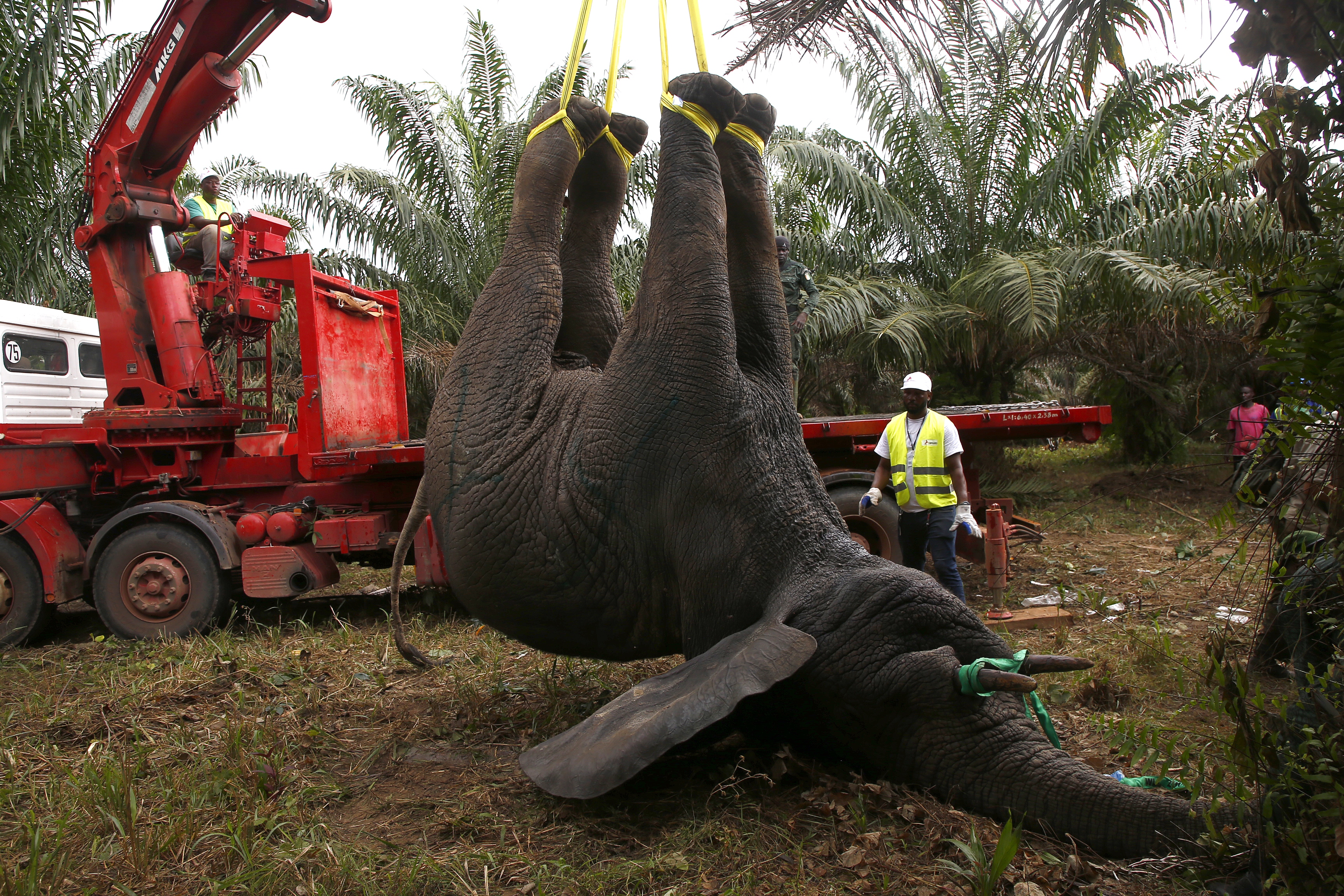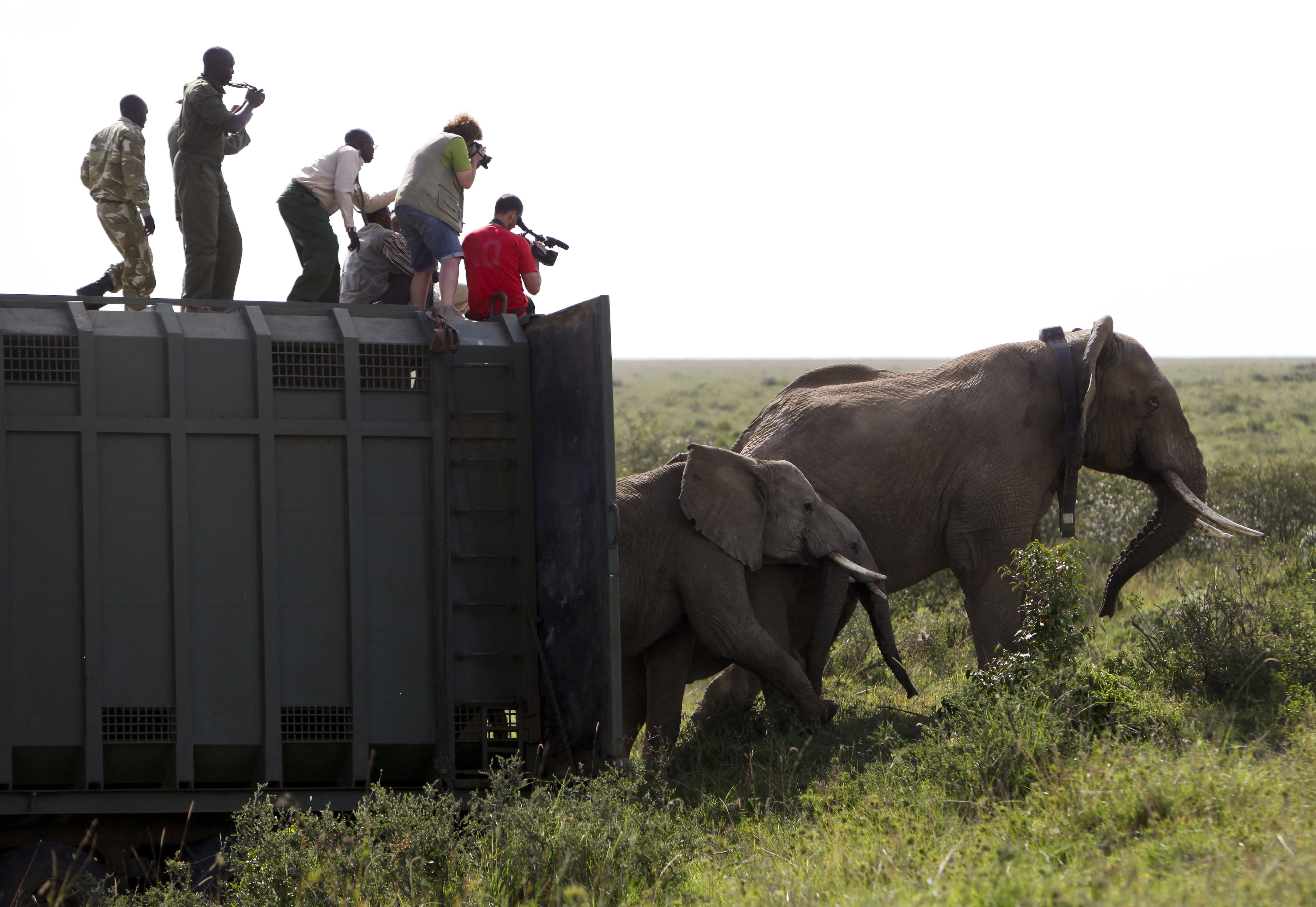Broadly, rewilding refers to relocating wild species to former ranges and habitats where the critters once roamed but have since vanished or become extremely rare. It is not a new idea: current initiatives follow a trail blazed in the early 20th century by the American Bison Society, which bred enough of the animals at the New York City Zoo to translocate 14 to Wind Cave National Park in South Dakota.
Now a term of conservation art, rewilding is for the most part a noble goal and has mammoth potential to do good in the face of the “Sixth Extinction” currently sweeping an anthropogenic scythe across the planet. The 2,000 white rhinos bought from mega-breeder John Hume last year by the NGO African Parks for example are slated to be “rewilded”.
One offshoot of this movement is “Pleistocene Rewilding”. This seeks to reintroduce megafauna to former ranges where such species went the way of the dodo thousands or tens of thousands of years ago.
The thinking behind this radical concept stems from the “overkill theory”, which holds that pre-historic human hunters were behind the often sudden extinctions of dozens of large mammals around the world after Homo sapiens ventured out from its African cradle.
First raised by a pioneering US scientist named Paul Martin in the 1960s, it’s a hypothesis that has its detractors — climate change, disease, and a meteorite are among the other explanations — but Pleistocene overkill has growing support in the scientific community.
So “Pleistocene rewilding” seeks to reverse this “unnatural event” — the global extermination of megafauna outside of Africa at the hand of our ancient ancestors — by restoring such animals, or close living relatives, to their previous ranges.
The removal of such animals — known as “keystone species” because of their outsized and vital role in holding up ecosystems — had widespread ecological consequences that have given rise to an emerging branch of scientific enquiry. The Americas and UK for example became far more forested because of the mass removal of elephant-like animals.
 Agents of the special services of Ivorian Water and Forests, preparing a truck to transport an elephant captured in the department of Sikensi in Ivory Coast, as part of an elephant relocation operation. (Photo: EPA-EFE/Legnan Koula)
Agents of the special services of Ivorian Water and Forests, preparing a truck to transport an elephant captured in the department of Sikensi in Ivory Coast, as part of an elephant relocation operation. (Photo: EPA-EFE/Legnan Koula)
Sergey Zimov, a Russian scientist, aims to restore the mammoth steppe ecosystem at the “Pleistocene Park” in Siberia by reintroducing large herbivores. One upshot could be that the elimination of trees and shrubs by such animals could help to cool the ground in the winter, which in turn will slow the thawing of permafrost in summer, a process that releases greenhouse gases.
Rewilding proponents have also defended a population of feral hippos in Colombia — the legacy of an exotic zoo owned by mega-drug lord Pablo Escobar. Scientists maintain the animals are filling a niche once filled by massive Pleistocene animals such as mammoths and giant wombats.
Almost two decades ago, a group of conservation scientists proposed repopulating North America with elephants, lions and cheetahs, and it is a concept that continues to attract attention.
Scientists and other experts have also called for megafauna restoration in Europe on moral and legal grounds.
These are all laudable goals that will surely advance the cause of science.
But in most of North America and Europe, they will hit a political brick wall of popular resistance — unless the animals are contained in fenced-off and secure reserves.
The middle classes in affluent countries up North may have shed tears in 2015 for a lion named Cecil in Zimbabwe.
But heaven forbid, they are hardly going to tolerate lions — or for that matter elephants, hippos or rhinos — in their own backyard. They are not going to subject their kith or kin to the risk of attack by such animals. It would simply be inconceivable.
But poor, rural Africans, well, they are a different story.
Human life vs wildlife
As an example, look what is taking place in Malawi at the moment.
The Guardian reported last week that the human death toll linked to an elephant relocation project in the southern African nation had risen to seven.
Almost two years ago in what was touted as one of the largest operations of its kind, over 260 elephants were translocated from Liwonde National Park in southern Malawi to Kasungu National Park near the border with Zambia. The project was led by the International Fund for Animal Welfare (Ifaw) and African Parks. The latter’s involvement in the project ended last year.
The translocation has proven lethal for local people.
Per The Guardian: “In the days after the translocation ... two people were killed by elephants in the area the animals were moved to, and a third person was killed in September that year. Communities warned of growing problems with human-wildlife conflict.
“After the move, a community leader accused the wildlife NGOs of caring more about animals than people. An electric fence to protect people on the edge of the park had not been completed, he said, highlighting that the elephants had been moved from a protected area that already had a fence.”
And the human death toll has continued to rise. In June 2023, 31-year-old Masiye Phiri was killed and her two-year-old child was injured when they were attacked by a bull elephant in a garden outside the park boundaries, according to The Guardian. In August of last year, 32-year-old Jackson Banda was killed by another elephant that had left the park.
Ifaw said in a statement at the time that it was “deeply saddened” by the incident and said that 70km of a perimeter fence near the park’s densely-populated eastern boundary had been complete, with another 20 km to be extended by the end of last year.
That begs obvious questions, such as why was the fence not complete before the relocation took place?
I can guarantee you that such an initiative in North America or Europe — the sources of most of Ifaw’s funding — would not take place without a proper fence and years of consultation with local people.
But rural Malawians are treated as if they are extras on the set of some Tarzan or animated Disney movie. Their plight or views do not seem to matter. It’s one example of how poverty literally makes you prey.
Rural Africans also don’t want to be used as guinea pigs for future megafauna rewilding attempts up North. Instead of funding such projects in an area that is literally costing Malawians and Zambians their lives, perhaps we should start releasing elephants and other big animals into their former haunts in North America and Europe.
And it will only take one human death up North to put a .375 bullet through the skull of such an initiative. DM




 Agents of the special services of Ivorian Water and Forests, preparing a truck to transport an elephant captured in the department of Sikensi in Ivory Coast, as part of an elephant relocation operation. (Photo: EPA-EFE/Legnan Koula)
Agents of the special services of Ivorian Water and Forests, preparing a truck to transport an elephant captured in the department of Sikensi in Ivory Coast, as part of an elephant relocation operation. (Photo: EPA-EFE/Legnan Koula) 